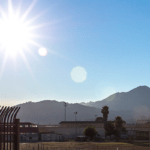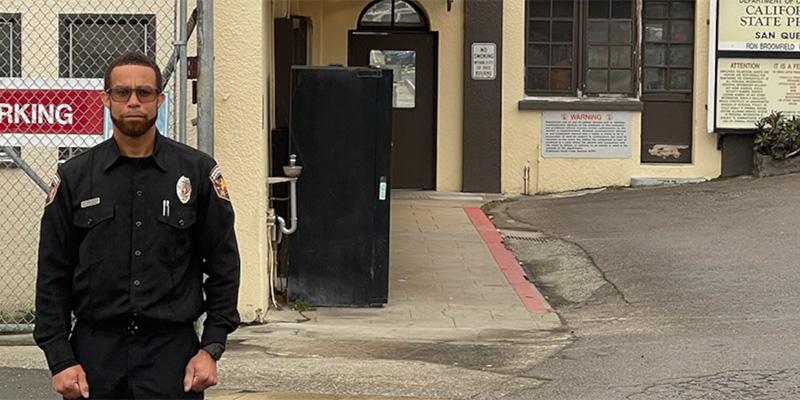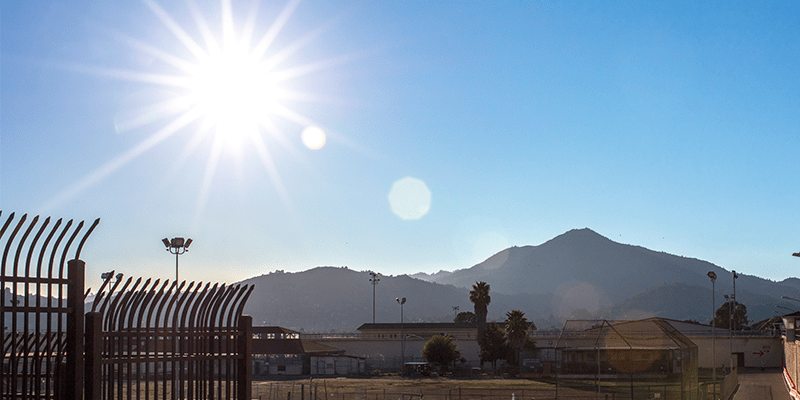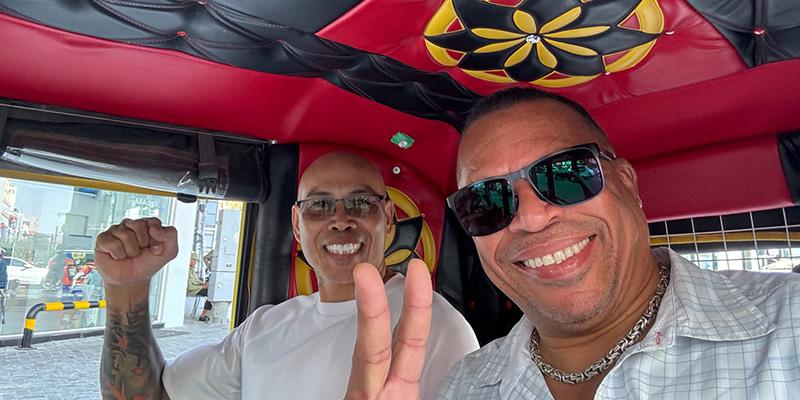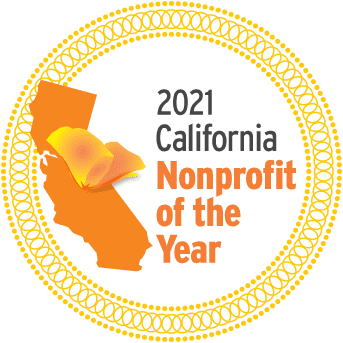Life as an inmate is a rough existence. For prisoners, being housed in a vastly negative environment, surrounded by the worst of the worst, going underfed, and being treated inhumanely becomes the norm. With all of the negative aspects associated with life as a prisoner, it sometimes makes rehabilitation a daunting task and a secondary concern to some inmates. However, mechanisms exist that make rehabilitation possible.
My first step to rehabilitation was the willingness to make necessary changes in my life. This step required outside help to facilitate a transition into true rehabilitation. Being in contact with supportive people eases the loneliness of incarceration. The highlight of my day comes when my wife tells me how proud she is that I am doing excellently in college. These experiences with supportive friends and family help drive my desire to succeed and push me to keep my nose
in my books and my behind out of trouble.
Having access to higher education has changed my life in many ways. I came to prison as a high school dropout, with limited opportunities to attain a well-paying job. However, after attending courses through the Prison University Project, a lot of doors have come open for me. The Prison University Project is a non-profit organization that offers college-preparatory and credit classes leading to an Associate’s degree at San Quentin State Prison. PUP faculty are volunteer instructors from universities in the Bay area.
PUP has enabled me to gain greater insight into the world that we live in and the thoughts and events that have shaped our society. My Ethics, Sociology, and American History courses have helped me to better understand history in context.
They have also exposed me to great thinkers such as Karl Marx, Emile Durkheim, Aristotle, and A. Phillip Randolph. Being exposed to these thoughts and theories helped reshape my own thinking. The requirement to write and apply various theories of ethics helps inmates place their moral compass in juxtaposition to others, providing deeper insight into the effect of their own choices.
I am halfway toward my goal of attaining an Associate of Arts degree; however, I have employable skills right now. By the time that I graduate from PUP, I will have received more quality skills that are applicable in today’s society.
PUP’s staff and volunteers have given me one of my greatest gifts while incarcerated: they have treated me with basic human dignity. The hardest part of doing a prison sentence is the constant inhumane treatment by staff. Arbitrary punishment is the norm in life as an inmate. An inmate may not reap benefits from their good behavior, but will be negatively impacted by another’s bad behavior.
On countless occasions, I have been strip-searched and made to get completely naked outside for all to see, because two inmates got into a fight on the opposite side of the yard. Strip searches are supposed to be utilized if staff has a reason to believe an inmate is hiding dangerous contraband on their person. However, staff routinely use strip searches as a form of humiliation or intimidation, stripping away not just an inmate’s clothes, but their dignity, as well. Furthermore, inmates are stripped of their personal identity and relegated to a number. While this tactic of assigning inmates numbers to make two or more inmates with the same name easier to identify is effective and logical, the result of an inmate’s loss of their name has psychological effects.
PUP’s volunteers treat inmates like regular humans and refer to us on a first-name basis, and we in turn refer to them as we would our peers. In the prisoner/staff member dynamic, that is almost unheard of. This restoration of basic human dignity has many positive effects on inmates.
I now prefer to spend my time in class or at Study Hall surrounded by the positive environment PUP provides, than to spend time on the yard surrounded by negativity and a misguided understanding of masculinity. All of my friends, either on the yard or in my outside support group, recognize the positive influence the college program has had in my life and commend me on my progress.
PUP is one of the few options that an inmate in California has available to earn a college degree. Moreover, PUP is the only college program that I am aware of that provides inmates lucky enough to participate in the program with in-class instruction; other programs rely on correspondence. These differences in structural operation are important because interacting with instructors allows for students to ask questions on challenging material and the positive feedback from college instructors gives inmates a boost of confidence. This enables students to get the most out of their educational experience, while also helping students achieve better success in the classroom, which directly translates into higher levels of self-confidence. Without a sufficient level of confidence upon release, inmates are susceptible (likely?) to stick to the rivers and lakes that they are used to, meaning they will revert back to criminal activities.
My experience at PUP has been invaluable because I have been provided the educational tools to enrich my life. If members of today’s society are truly interested in what type of educational programs are working to cure the problem of recidivism, the Prison University Project is a wonderful example. PUP not only provides inmates at San Quentin with a quality education, but treats the inmates like human beings, which is conducive to their rehabilitation. The quality of education, along with the formula with which the PUP program operates, should be duplicated in prisons nationwide.
Please note that the Prison University Project became Mount Tamalpais College in September 2020.


